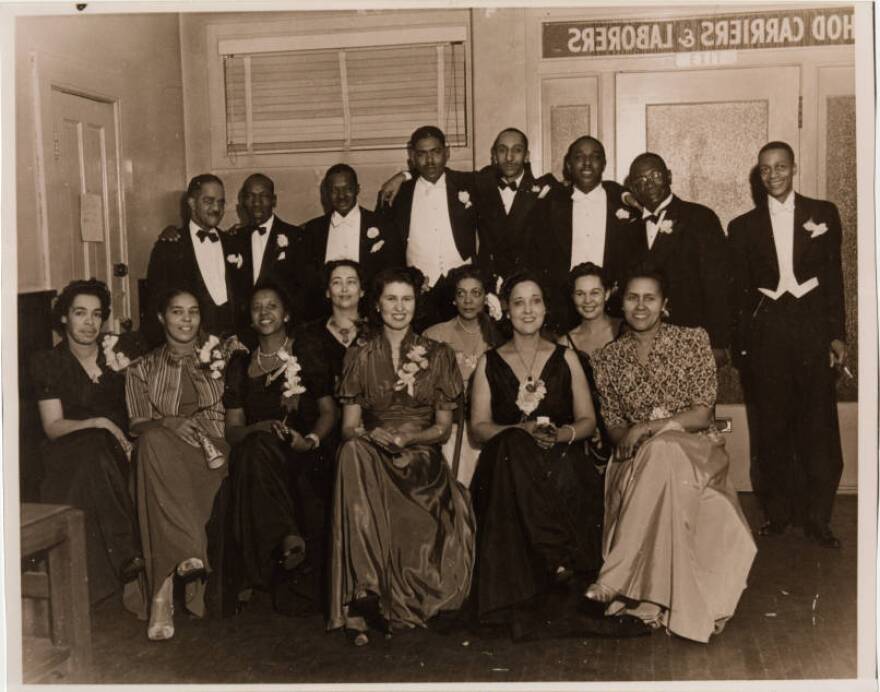AL: I’m here with Dr. Monica Tetzlaff, a professor of history at Indiana University South Bend. Her expertise is African American history and local history. A few weeks ago, I heard you give such an inspiring talk, in part about the life of Odie Mae Streets, and I’d love for you to share a little bit about her inspiring life, here, starting with a little bit of background on the Streets family.
MT: Well, Odie Mae Streets was Odie Mae Johnson, and she went to high school here in South Bend, and started advocating for the right to recreate right away. She wanted to swim, and Black girls were not allowed to swim, even though there was a beautiful pool at Central High School. So, she insisted on that right, and she was able to.
AL: That is such an inspiring story that she then passed along to her children. So, could you say a little about that?
MT: Yes. She got married to Dr. Bernard Streets soon after he arrived in South Bend and established a dental practice. They both immediately joined the NAACP and started working hard on the issues of equality for African Americans in South Bend. She served as the secretary, generally, and he would go out in the field to test the laws.
AL: And in addition to that sort of work that they were doing in the public, in her family life, she introduced her children to swimming, and those sorts of joys, as well, right?
MT: Absolutely! You know, there’s a photograph of her husband as a lifeguard at the Frederick Douglass Pool in Indianapolis, and I think one of the reasons they were attracted to each other was their love of swimming, singing, music, theater. And that kept them going through their activism. So, when they had small children, they traveled up to natural lakes up in the state of Michigan, and they also took advantage of “Colored Day” at Playland Park. And, of course, the Natatorium, the “public” pool, was not open to African-Americans at all when they first came to South Bend.
AL: Decades of experience in our community! One of the things that really struck me was how she was a lifelong learner. Could you talk a bit about what she accomplished later in life, coming to Indiana University South Bend and what she learned there.
MT: Absolutely. So, in the 1960s, when her children were older, she got involved in the Laubach Literacy Institute, and one of her friends in the Council of Churches worked with migrant workers. Now, Dr. Bernard Streets had learned Polish in the 1930s to serve his Polish-speaking patients. And she decided to learn Spanish. She had a love of Spanish, she wanted to travel, and she went to Mexico, as well. But she studied Spanish at IU South Bend, and then she was able to work with migrant women who needed the services of the YWCA, and also serve on the board of an organization called El Centro de Christiano de Communidad.

International Hod Carriers and Building Laborers' Union formal gathering, including Odie Mae Streets, J. Chester Allen, and Elizabeth Fletcher Allen. The union was founded in 1963 and in 1965 was renamed the Laborer's International Union of North America. |
AL: So, it’s a wonderful story to me about the power of the liberal arts. And she started an important local organization, or helped start it, correct?
MT: That’s right: Head Start. South Bend was one of the first places; she was a volunteer teacher when she started, and in 1969, she became an official teacher, and her daughter-in-law was also a Head Start teacher, so it was a family effort.
AL: That is so cool! So, if people wanted to learn more about her, where would they find out more?
MT: Well, two places. One is the Michaina Memory site of the St. Joseph County Public Library. And the other is “South Bend’s Own Words,” a podcast [coming out in 2024] that is produced by the Civil Rights Heritage Center.
AL: So, something to look forward to, and, really, a legacy that we see everywhere in our community. Thank you so much for your time!

For Michiana Chronicles, I’m April Lidinsky, and I’m Monica Tetzlaff
Music: “I’ll be Seeing You in All the Old Familiar Places” sung by Billie Holiday




